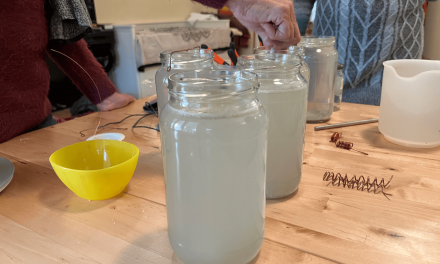Do you want to learn more about the importance of health, safety and nutrition in early childhood? In this article, guest writer Alecia Carroll explains why you should pay attention to those aspects.
Just a little heads up: some of the links in this blog are affiliate links, which means if you click on them and make a purchase, we may earn a small commission at no additional cost to you. 😊
We only recommend products and services we genuinely believe in and have personally used or researched. Your support through these links helps us keep bringing you valuable content, so thank you for being amazing!
Estimated reading time: 9 minutes
Pregnancy undernutrition stunts fetal development, resulting in chronic illnesses that are irreversible. Women who are undernourished while breastfeeding may negatively affect their babies’ growth, especially during the first six months when their babies are entirely reliant on breast milk. Children develop very quickly during their first two years of life. A newborn child begins life entirely dependent upon its parents as a helpless infant. The role of parents in early childhood is to nurture, care for, and not be angry with their children.
A recent study was done on the effects of early trauma and adult attachment on parent-child relations. Moreover, it proves that the effects of trauma on later generations have been more complicated than previously believed. A focus has emerged on the parent-child relationship and how trauma affects parenting in adults who have experienced abuse or neglect as children. In their early years, toddlers begin to understand a lot and say “no” frequently. A child’s inclination and rejection of things develop between two and three, especially concerning food. Considering the nutritional status of a toddler is, therefore, appropriate.
In this article, we’ll discuss how you as a parent can maintain health, safety, and nutrition in early childhood.
Here’s What You’ll Learn about Health, Safety and Nutrition in Early Childhood
- Health, Safety, and Nutrition in Early Childhood
- Basic Importance of Health in Early Childhood
- Basic Importance of Safety in Early Childhood
- Basic Importance of Nutrition in Early Childhood
- Tips For Maintaining Health, Safety and Nutrition in Early Childhood
- Some Final Remarks To Importance of Health, Safety and Nutrition in Early Childhood
- Learn More About Parenting? Discover These Amazon Bestsellers on the Topic:
Health, Safety, and Nutrition in Early Childhood
The most important factors to consider are health, safety, and nutrition when raising children. To put it another way, every child should grow up with good nutrition, good health, and safety so that he or she can have the best possible future.
In addition to policies related to early care and education, family economic support, mental health support for adults, primary health care and child protective services among others, many other policies can be implemented to create a safe, supportive environment and foster a stable, caring environment for children.
If you’d like to deep dive into the topic how to nurture your child, make sure to read the New York Times best-seller ‘The Whole-Brain Child: 12 Revolutionary Strategies to Nurture Your Child’s Developing Mind’
Basic Importance of Health in Early Childhood
The health of young children affected their health as adults and their education, earning potential, and economic contributions. Early life conditions strongly influence lifelong wellbeing. According to numerous studies, health, education, employment, and socioeconomic status are all affected by early-life outcomes.
Children should be in excellent health to grow up to be healthy adults. Regular exercise and a healthy diet are important factors in staying healthy, which apply equally to children. It’s important to recognize that many of the routines and diets adults follow to stay fit can be harmful to children. It is therefore advisable for parents to research appropriate and nutritious diets to promote good health.
Discover practical ways to ensure proper health in early childhood in this video:
Basic Importance of Safety in Early Childhood
Safety is always the foremost concern for parents since they need to know their children are safe. Young children require the right amount of supervision and a safe environment to prevent any injuries.
According to WHO, 339 children and young people self-harmed per 100 in the three months to 30 June 2021, which represents a 27% increase over the same period the previous year.
For a child’s proper development, it is imperative to keep them safe from an early age. When young children are learning how to recognize dangerous situations, a safe environment can help prevent and reduce their injuries. Children should have the freedom to roam around their surroundings in a safe environment.
Additionally, you should communicate and share information about safety rules and different safety aspects openly with children.

Basic Importance of Nutrition in Early Childhood
Nutrition is an essential aspect of a child’s growth and development. It facilitates a child’s development of a healthy lifestyle and fosters good eating habits from an early age. The 3 main benefits of early nutrition for children are that it ensures that the brain and other vital organs develop properly, builds immunity against infectious diseases, and boosts a child’s activity level and cognitive functioning. Proper nutrition is thus a necessity for children, as it prepares them for a life of good health and balance.
Having food your child consumes at an early age affects their learning ability years later may seem strange. However, it is a fact. The importance of monitoring your child’s nutritional intake during their early childhood comes from the benefit of their performance later in life. For example, breastfeeding correlates with higher IQ, while iron deficiency correlates with poor academic performance during the school years.
In layman’s terms, undernourished children get ill more often, miss school more often, and fail to keep up with peers. Research has revealed an even stronger link between breakfast and tests: children who eat breakfast tend to score higher.
If you’d like to dive deeper into the topic of nutrition for young children, make sure to read the popular nutrition book ‘Feeding Baby Green: The Earth Friendly Program for Healthy, Safe Nutrition During Pregnancy, Childhood, and Beyond’
Tips For Maintaining Health, Safety and Nutrition in Early Childhood
Here are some practical tips to maintain health, safety, and nutrition in early childhood.
Promote Good Health To Minimize Sickness
It is crucial to prevent the spread of icky germs such as those that can cause flu, colds, and other diseases. When it comes to preventing the spread of germs and illnesses, proper hand washing is paramount. Parents should guide their children to learn how to wash their hands properly at home.
Additionally, parents can ensure childcare safety by ensuring their children receive all the recommended vaccinations and immunizations. By doing this, you ensure your child doesn’t come into contact with diseases and germs. A list of medical immunizations is usually required for enrollment in most high-quality child care centers.
Keep Playthings and Playgrounds Safe For Children
In reality, most injuries and accidents related to childcare safety occur when the children have the most fun. Play provides a lot of opportunities for kids to do precisely that. Nevertheless, there are certain safety hazards that any safety review of childcare should consider.
The parents of young children should ensure that they learn how to prevent common injuries caused by falling. If you have a child pushing, shoving, and crowding on a playground, especially a jungle gym or other game equipment, make sure your child understands the danger.
Keep Children Under Supervision
It’s not a good idea to leave children alone and unsupervised. To ensure the safety of children, parents should encourage them to observe, count, and listen at all times. Alternatively, parents who are too busy to keep an eye on their children may use parental control apps such as Fenced.ai, NetNanny, Bark.us.
Teach Safety Habits
It is a dangerous world out there. Here are some ways you can teach to keep your children safer:
- Avoid chasing or bothering animals, especially when they are eating, sleeping, or with their babies.
- Don’t forget to wear a seatbelt.
- Wear helmets while biking, snowboarding, skating, and skiing.
- Swimming alone is dangerous.
- Make sure you know how to contact 911 or other emergency services.
- Treat strangers with caution. Know when to avoid them and when not to.
- Don’t hesitate to ask for help if you get lost.
- Never cross the street without permission or alone.
- Playing near automobiles or in the driveway is not a good idea.
Focus on Nutritious Diets
The following nutrients are important for children:
- Bones become stronger with calcium. Milk, yogurt, and seeds are rich sources of calcium.
- Muscles are built from protein. Lean meats, eggs, cheese, etc. all contain protein.
- Energy comes from carbohydrates. You can find them in whole grain bread, potatoes, and apples.
- Healthy blood is made of iron. This mineral can be found in grains, legumes, and spinach.
- The body absorbs vitamins better with essential fats. Essential fats are found in nuts, fish, and avocados.
Some Final Remarks To Importance of Health, Safety and Nutrition in Early Childhood
Keeping a child healthy, ensuring their nutritional needs, and keeping them safe are all equally important. As a gift of the universe, children arrive here innocent and unknowing, and it is the responsibility of their parents to nurture and protect them.
Healthy children live longer, while children’s safety ensures their survival and nutrition contributes to their mental and physical development. Their well-being and existence on the planet will greatly benefit from bringing everything together.









